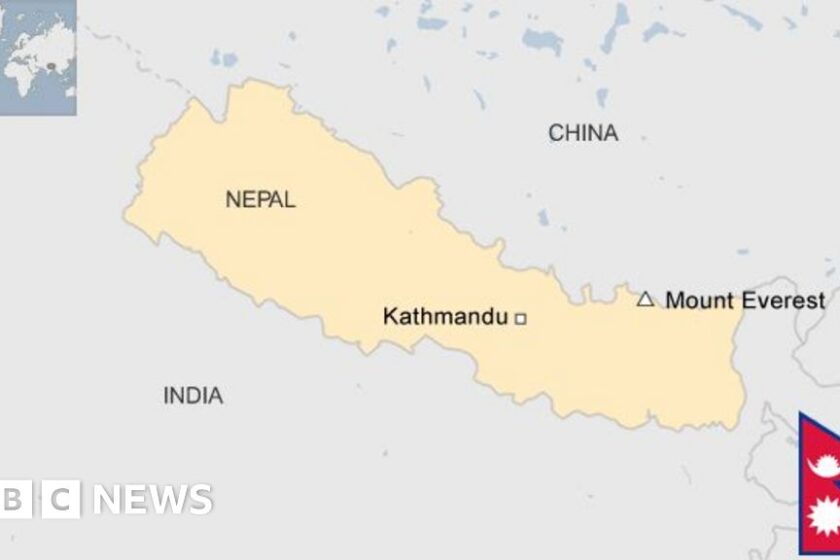Did you know that Nepal, the land of Mount Everest, has a fascinating history of colonization? Over the centuries, several powerful countries left their mark on this enchanting Himalayan nation. F
rom the British Raj to the Gurkhas, each colonial power brought unique influences that shaped Nepal’s culture, economy, and political landscape.
By exploring the countries that had a hand in colonizing Nepal, we can gain a deeper understanding of the diverse heritage and rich tapestry that make up this beautiful country.
British Colonization

British East India Company’s Influence
The British East India Company played a significant role in the colonization of Nepal. As the Company expanded its presence in the Indian subcontinent, it sought to gain control over neighboring regions, including Nepal. The Company’s influence was primarily driven by economic and strategic interests, as Nepal provided a gateway to Tibet and Central Asia. The British East India Company established trade relations with Nepal, exporting goods such as tea, spices, and textiles, while importing raw materials and resources.
1st Anglo-Nepalese War
The 1st Anglo-Nepalese War, which took place from 1814 to 1816, marked a significant turning point in British-Nepalese relations. The war was triggered by territorial disputes and British concerns over Nepalese expansion into the British East India Company’s territories. The British, with their superior military power, eventually emerged victorious, albeit after facing strong resistance from the Gorkha Kingdom.
Treaty of Sugauli
The Treaty of Sugauli, signed in 1816 following the 1st Anglo-Nepalese War, delineated the terms of the British East India Company’s influence in Nepal. Under the treaty, Nepal ceded extensive territories to the British, including parts of present-day Uttarakhand and Himachal Pradesh in India. Additionally, Nepal agreed to establish diplomatic relations with the British East India Company, granting them significant control over Nepal’s foreign affairs.
British Residency in Kathmandu
In order to maintain control and influence over Nepal, the British East India Company established a residency in Kathmandu, Nepal’s capital. The British Residency served as a diplomatic and administrative center, where British officials resided and carried out the colonial administration’s policies. This presence further solidified British control and influence over the internal affairs of Nepal.
Rana Dynasty and British Influence
The Rana Dynasty, which ruled Nepal from the mid-19th to the mid-20th century, maintained a close relationship with the British. The Rana rulers, who ascended to power after overthrowing the Shah monarchy, viewed the British as essential allies against potential internal threats. They relied on British military support and continued British influence to retain their position. This period witnessed an increased British role in Nepal’s governance, with British advisors appointed to key government positions.
Role in Nepali Education System
The British colonization of Nepal had a significant impact on its education system. The British introduced a formal education system, influenced by their own model, that replaced the traditional Gurukul system. English education became prevalent, and Western subjects and teaching methods were introduced. Although this modernization brought opportunities for Nepali students, it also led to a gradual erosion of indigenous knowledge and cultural practices.
British Influence on Administration and Legal System
The British introduced a centralized administrative system in Nepal, modeled after their own colonial administration. They established bureaucratic institutions, such as the Secretariat and the Revenue Department, which aimed to streamline governance and exert British control. Furthermore, the British introduced a legal system based on English common law, which replaced traditional Nepalese legal customs. The implementation of these systems significantly altered Nepal’s administrative and legal landscape.
Political and Economic Influence
The British colonization of Nepal had a profound impact on its political and economic spheres. By exerting control over Nepal’s foreign affairs, the British East India Company ensured its dominance in the region. They influenced the appointment of the Nepalese rulers, ensuring that they were friendly towards British interests. Additionally, the British promoted economic policies that favored their own trading interests, leading to the exploitation of Nepal’s resources and creating dependency on British goods.
Demise of British Influence
The British influence in Nepal started to decline with the rise of anti-colonial movements across the Indian subcontinent in the early 20th century. The Rana oligarchy, which had maintained close ties with the British, faced growing opposition from the democratic movement in Nepal. This culminated in the overthrow of the Rana regime in 1951 and the subsequent establishment of a democratic government. Additionally, India’s independence in 1947 shifted the dynamics in the region, further weakening British influence in Nepal.
Legacy of British Colonization
The legacy of British colonization in Nepal is complex and multifaceted. While it brought about significant changes in Nepal’s political, economic, and educational systems, it also resulted in the loss of territorial sovereignty and the erosion of indigenous cultural practices. The British influence in Nepal laid the foundation for a more modern Nepal, while also leaving a lasting impact on its governance, legal system, and relations with neighboring countries.

